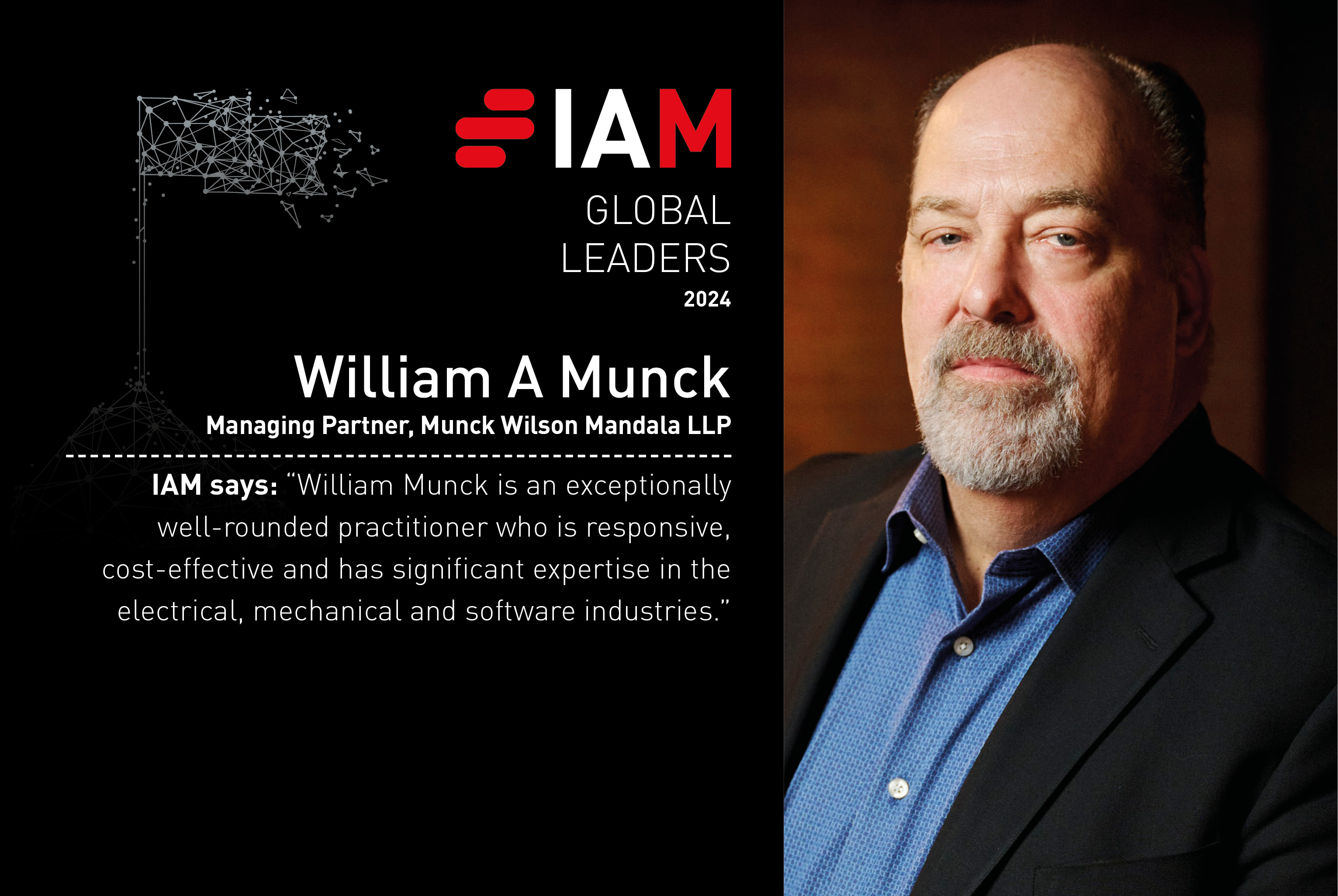William A Munck
 What is your greatest professional achievement to date?
What is your greatest professional achievement to date?
At MWM, we practise law as a team sport, and we recognise that the pooling of diverse skills and perspectives across legal practices leads to better outcomes for our clients. Successful complex legal work involves the contributions of multiple professionals, attorneys and staff, working together towards a common goal. We were six lawyers in the summer of 1998; today, our team is approaching 100 attorneys. My greatest professional achievement is being a part of that growth.
You and your firm are renowned for your expertise in the intersection between technology and intellectual property. What is your take on AI’s potential to infringe on patents?
While generative AI has already had an impact in fields such as pharmaceuticals, robotics and automated vehicles, the laws that govern patents are still focused on the human component of original ideas. AI does not generate original ideas; it takes sophisticated data and uses sophisticated algorithms to create what humans ask it to create. We have control over how AI will impact patent law and I take comfort in the knowledge that the USPTO is being proactive in addressing how AI should be governed in the inventive process. I believe that the USPTO will analyse the input they are receiving and there will be some changes in law based on AI and its potential to infringe on patents, but I don’t see a world in which we grant patents to non-human entities. There was a quote in the Harvard Business Review that resonated with this topic: “AI won’t replace humans – but humans with AI will replace humans without AI” (Professor Karim R Lakhani, Harvard Business School).
If you could make one change to the US landscape for patent eligibility, what would it be and do you expect it to happen?
I would overturn the Mayo/Alice line of court decisions and revert to the original meaning of Section 101, Chapter 35 of the US Code – if an invention is directed to a process, machine, manufacture or composition of matter and has some form of utility, it is directed to patent-eligible subject matter. Patenting what is well understood, routine and conventional would then be more suitably handled under Sections 102 and 103 by noting that the implementation of a known concept using a generic computer is not novel or obvious.
I do not expect this to happen, however. There are too many entities which like the fact that it is much easier to get infringement litigation tossed by having patents declared invalid as opposed to being directed to ineligible subject matter.
What does inspiring leadership look like at Munck Wilson Mandala and how has this evolved over the last decade?
Inspiring leadership is about developing the future faces of MWM and leadership goals must be to raise the entire team to the next level. Over the last decade we have inspired by factoring in different views, cultures and backgrounds into our leadership decisions. We have several now senior partners who started their legal careers with us as young associates and who now inspire those junior to them. I am a New York police officer’s son and I share experiences that are unique to me to inspire my team. Other leaders in our firm bring the best of their life experiences to inspire their respective teams.
Our law firm gives a voice to individuals at all levels and demonstrates that everyone on the team matters. We now have an advisory committee consisting of younger attorneys and staff who bring relevant views and values to the table. Our next generation of lawyers are taking on more responsibility in driving MWM into a successful future.
What key skills do you need to build long-lasting client relationships?
The skills that contribute to long-lasting relationships are no different in business than they are in love, family or other areas of life. Listening, communicating, being proactive, being helpful, bringing value, being selfless and thinking creatively are all crucial. When we are conducting business development workshops, I encourage the attorneys to think about what motivates them outside of work (hobbies, passions) to find what motivates their clients so that they can establish common ground. That is what helps build a lasting relationship, when you share a cause, activity or passion and you check in with each other regularly, not just when work is concerned.
William A Munck
Managing Partner
[email protected]
William A Munck is the managing partner of Munck Wilson Mandala, a technology-focused law firm. Mr Munck chairs the firm’s technology and IP section and has successfully grown MWM from five to more than 95 attorneys over the past 25 years. He is highly ranked by his peers as a Texas Super Lawyer, as Best Lawyer in America, and he has been a member of the prestigious Dallas 500 since 2020.